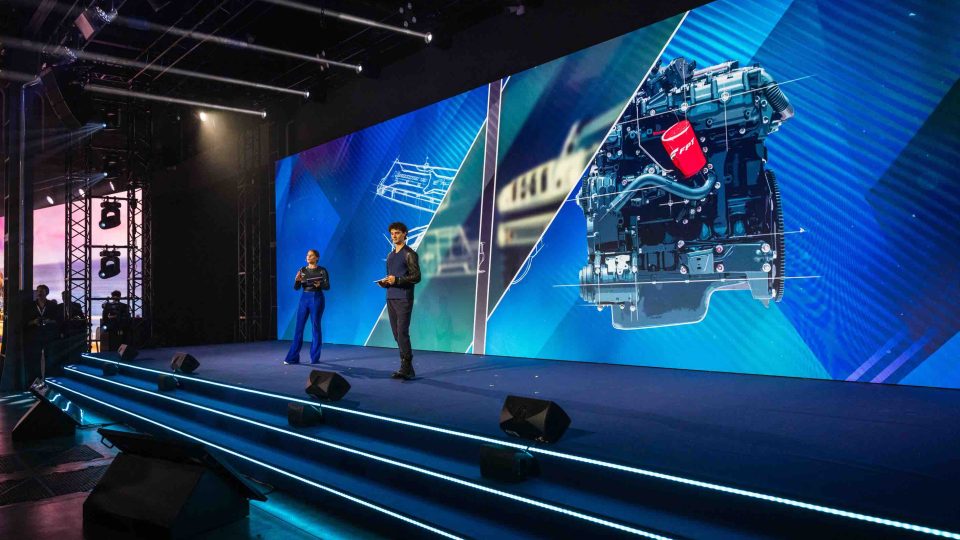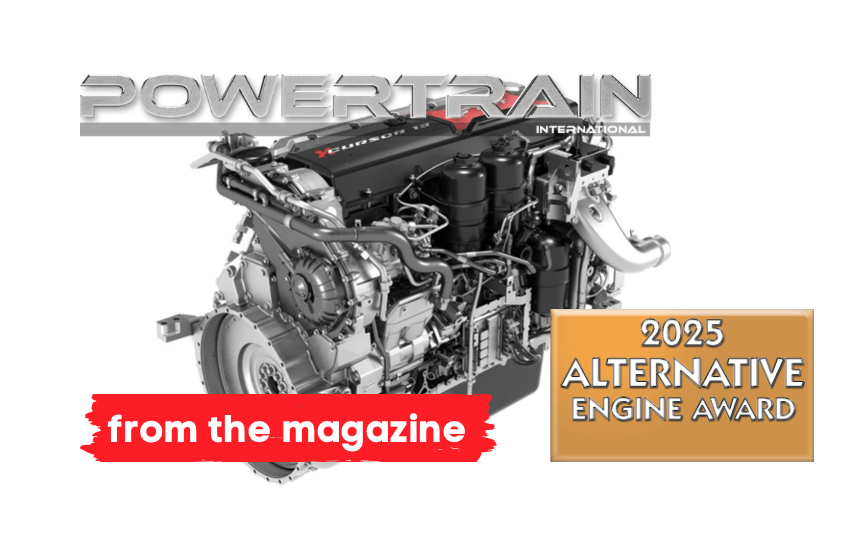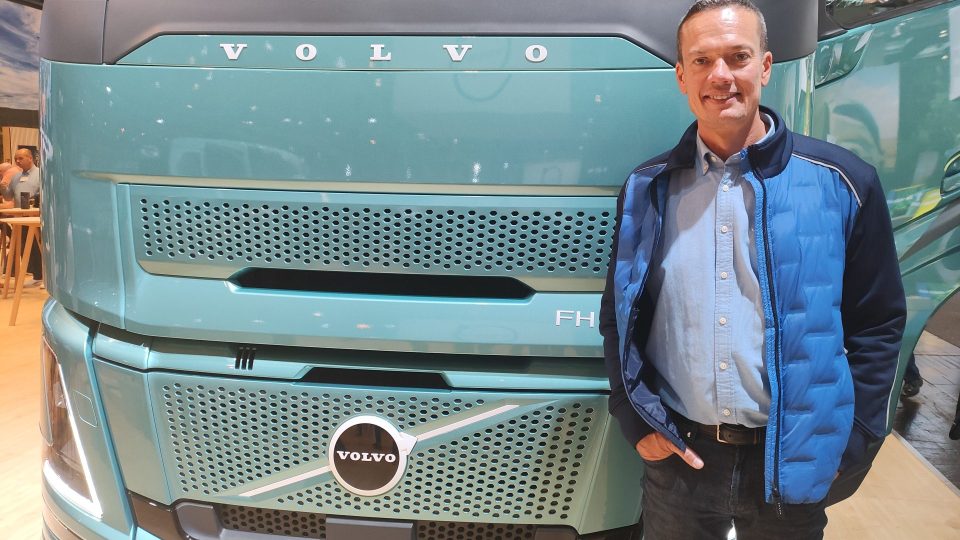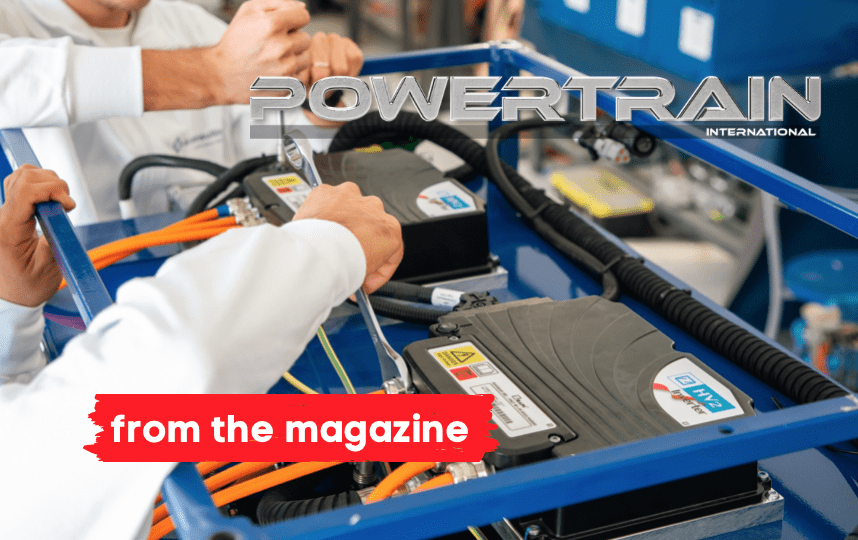[Think Pink] Patrizia Barrasso, Kohler: manager of the answers
For the Think Pink column, dedicated to successful women in the engine world, we interviewed Patrizia Barrasso, Compliance Manager Engines in ICE business at Kohler. Read the full article in the May issue of Powertrain International.
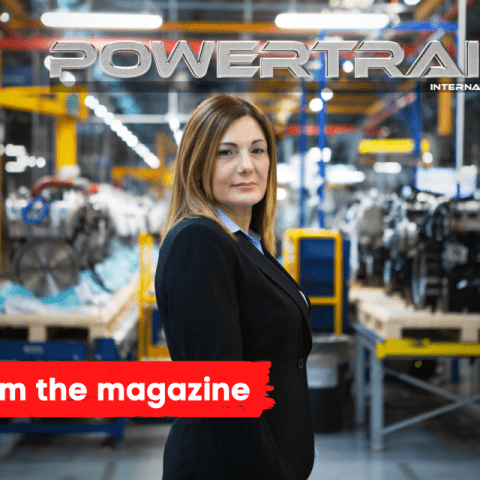
She has been working for Kohler for about 26 years, where she started in the Assurance and Quality Control department, then moving on to the Technical Department where she dealt with Project Management, and finally with Regulatory and Compliance.
Patrizia Barrasso, graduated in Mechanical Engineering at the Federico II University in Naples and subsequently in Management Engineering at UniMoRe (Modena and Reggio Emilia) University, is today Compliance Manager Engines in the internal combustion engine business.
She is responsible for monitoring compliance with national and international standards, production compliance and the application of company policies in processes.
Do you remember the moment you chose to study engineering? Would you make the same choice now? Federico II University and UniMoRe (expression of Italian territorial excellence in mechanics), what did one and the other give you?
“Yes, I remember very well the moment I decided to study mechanical engineering and I communicated it to my parents. They weren’t thrilled with my choice as it was a traditionally male faculty, so I should have run into some prejudice. But they let me choose. In fact, the presence of women in the faculty was less than 1 percent, but I was firm in my choice. At the time, engineering specializations were few compared to today. I was looking for a discipline that would allow me to combine my interest in scientific subjects and my passion for mechanics. This prompted me to enroll in mechanical engineering. However, I do not deny having a predisposition for the law which then came in handy in my professional career. I would absolutely make this choice again, even if the relationship between women and the STEM environment is still a very current topic of discussion. At the Federico II University I acquired technical and analytical skills and solution-oriented analytical thinking. Instead, when I was studying at UniMoRe I was already working, and to effectively combine work and study I strengthened organizational and result-oriented skills and acquired management skills and the ability to work within a team.”
What is the added value of a woman in holding a top role in this sector?
“Each individual is different from the other and can bring a unique value. Certainly, there are intrinsic characteristics that can be associated with women or men. Surely, as much research indicates, female leadership has partially different style canons from the male one: women are generally more empathetic, aimed at collaboration, teamwork, multitasking, focusing on the result yet favoring more inclusive methods of achievement. Not taking anything away from ability, which has no gender. These characteristics also represent an added value in a constantly evolving sector such as anti-pollution regulations, increasingly stringent due to climate risk, for the management of projects in the international legislative arena, for relations with institutional bodies and international regulatory authorities.”
In your experience, is there still a gender gap in Italy or is the country more in line with European standards?
“There have been improvements compared to the past and today there is more awareness, but this gap is still present. The comparison with some European benchmarks highlights Italy’s delay in reducing the gender gap. According to the annual report ‘Global Gender Gap Index’ of 2022, in terms of economic and political participation, health and level of education, Italy ranks 63rd out of 146 countries monitored, and 25th out of 35 countries at European level. Eliminating the global gap relating to the economic participation of men and women in Italy is certainly an uphill battle, but absolutely necessary. The good news is that there are currently new proposals for directives under consideration by the European Parliament to fill this gap. I am confident for the future, for my two daughters.”
The scenario of industrial engines seems more advanced than the automotive one from the point of view of the female presence. Randomness? What are you most proud of about your tenure?
“They are still two worlds where the female presence is in the minority. I started working here when the company was still Lombardini, I was the only female engineer and it had been like that for a few years. Then as the years went by, and with the advent of Kohler in 2007, the female presence started to grow. Kohler is guided by the ‘Believing in Better’ operating philosophy, according to which our best can always be better: better for the lives we touch, better for our communities, better for our planet, and better for business. Our company culture is inclusive. The Code of Ethical Conduct reinforces the commitment to fairness and equal opportunity in all employment-related processes and programs, including commitment to gender pay equity. At our plant in Reggio Emilia, we have been running a program called ‘She, Kohler’ for some years now, an initiative entirely aimed at female students and new graduates in industrial engineering, with the main objective of increasing the number of women in STEM disciplines at various levels to build our next and different talents. As far as I’m concerned, I’m proud to have contributed to the success of the company for the marketing of diesel engines in the European and international market, where continuous legislative changes impose a constant and increasingly complex verification of adaptation.”
What is the main challenge in your work, in your daily life? To what extent is it burdensome to associate the two words that summarize your professional role: diesel and compliance?
“The main challenge in my job consists in anticipating regulatory evolution and translating it into a potential business opportunity, especially for emissions regulations, and at the same time managing multiple international projects with a diversified approach. We need continuous analysis, flexibility, planning of activities. I like following all the phases of the project, being proactive, I like being the ‘manager of the answers’ and not of the questions. Compliance is the ability to make the company’s processes and products comply with the rules of national, international and internal corporate regulatory authorities. Diesel, on the other hand, is the corporate business. Associating the two words means making sure that the business grows in compliance with the regulations that govern the sector with a view to continuous environmental and social improvement.”
TO READ THE FULL ARTICLE CLICK HERE OR DOWNLOAD THE PDF






